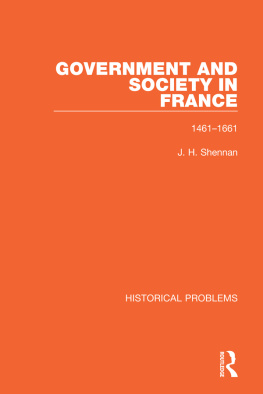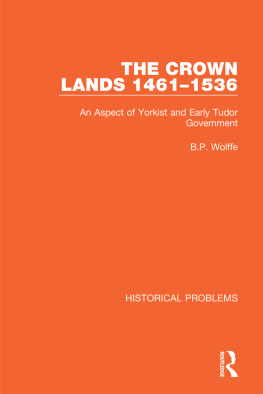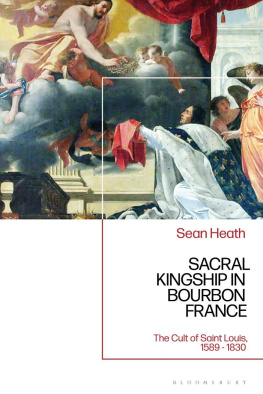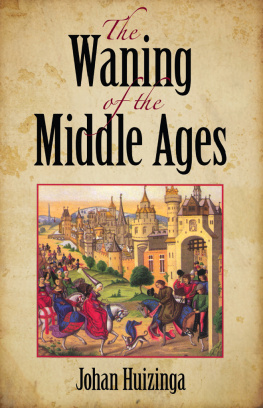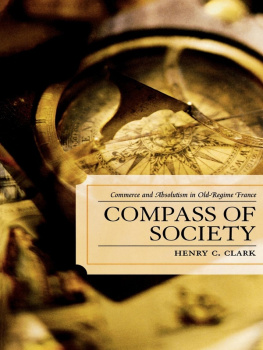First published in 1969 by George Allen & Unwin Ltd
This edition first published in 2021
by Routledge
2 Park Square, Milton Park, Abingdon, Oxon OX14 4RN
and by Routledge
52 Vanderbilt Avenue, New York, NY 10017
Routledge is an imprint of the Taylor & Francis Group, an informa business
1969 George Allen & Unwin Ltd
All rights reserved. No part of this book may be reprinted or reproduced or utilised in any form or by any electronic, mechanical, or other means, now known or hereafter invented, including photocopying and recording, or in any information storage or retrieval system, without permission in writing from the publishers.
Trademark notice: Product or corporate names may be trademarks or registered trademarks, and are used only for identification and explanation without intent to infringe.
British Library Cataloguing in Publication Data
A catalogue record for this book is available from the British Library
ISBN: 978-1-03-203925-1 (Set)
ISBN: 978-1-00-319296-1 (Set) (ebk)
ISBN: 978-1-03-201333-6 (Volume 9) (hbk)
ISBN: 978-1-03-201340-4 (Volume 9) (pbk)
ISBN: 978-1-00-317822-4 (Volume 9) (ebk)
Publishers Note
The publisher has gone to great lengths to ensure the quality of this reprint but points out that some imperfections in the original copies may be apparent.
Disclaimer
The publisher has made every effort to trace copyright holders and would welcome correspondence from those they have been unable to trace.
The reader and the teacher of history might be forgiven for thinking that there are now too many series of historical documents in existence, all claiming to offer light on particular problems and all able to fulfil their claims. At any rate, the general editor of yet another series feels obliged to explain why he is helping one more collection of such volumes into existence.
One purpose of this series is to put at the disposal of the student original materials illustrating historical problems, but this is no longer anything out of the way. A little less usual is the decision to admit every sort of historical question: there are no barriers of time or place or theme. However, what really distinguishes this enterprise is the fact that it combines generous collections of documents with introductory essays long enough to explore the theme widely and deeply. In the doctrine of educationalists, it is the original documents that should be given to the student; in the experience of teachers, documents thrown naked before the untrained mind turn from pearls to paste. The study of history cannot be confined either to the learning up of results without a consideration of the foundations, or to a review of those foundations without the assistance of the expert mind. The task of teaching involves explanation and instruction, and these volumes recognize this possibly unfashionable fact. Beyond that, they enable the writers to say new and important things about their subject matter: to write history of an exploratory kind, which is the only important historical writing there is.
As a result, each volume will be a historical monograph worth the attention which all such monographs deserve, and each volume will stand on its own. While the format of the series is uniform, the contents will vary according to need. Some problems require the reconsideration which makes the known enlighteningly new; others need the attention of original research; yet others will have to enter controversy because the prevailing notions on many historical questions are demonstrably wrong. The authors of this series are free to treat their subject in whatever manner it seems to them to require. They will present some of their evidence for inspection and help the learner to see how history is written, but they will themselves also write history.
G.R.E.
Two distinguished historians of the ancien regime, commenting in 1955 upon the nature of the French state in the three centuries preceding the Revolution, have argued that a notion of absolutism existed from which the idea of despotism was excluded. According to this notion, though the kings power was in the last resort unrestricted, it was customarily circumscribed by the tradition of French kingship, and any royal attempt at evading these inherited limitations would savour of arbitrariness (Doc. 1). This concept at once draws attention to those twin aspects of French history which together provide the necessary basis for an understanding of the period before 1789: the special nature of royal authority and the continuity of the monarchical tradition. The monarchy is the focussing lens through which French government and society should be viewed; it gave impetus to political action and point to social aspirations. This was true in Louis XIVs reign no less than in Louis XTs two hundred years before; indeed, it was scarcely less true in the days of Saint Louis some two centuries earlier still.
F. IIartung and R. Mousnier, Quelques problmes concemant la monarchic absolue, in Rapport pur leXe congrs international des sciences histortques, Rome 1955, P. 12.
The abiding prestige of the French king, his ability to dominate the political scene, stemmed in the first place from his basic function, the obligation to provide justice for his subjects. Upon the royal seal of Hugh Capet, the first of the Capetians, the king was depicted as a judge, and that remained the essential role of his Valois and Bourbon successors. At their coronation each of them swore to govern justly and mercifully and the identification of the role of political sovereign with that of supreme judge inspired a legalistic concept of government which was as deeply felt in the seventeenth century as it had been in the fifteenth (Doc. 2). The kings right to administer the kingdom and to wield supreme executive power depended upon his prior right to dispense justice. He could and did empower his officials and counsellors not only to collect taxes, supervise the waging of wars and deal with a thousand and one administrative matters, but also to judge on his behalf. It was even considered that problems of foreign policy had to be resolved by verdict of the royal judge. This institution more than any other could remind the king of his primary obligation to rule justly. For to rule justly implied respect for the law, and the laws of the kingdom and the countless civil and criminal judgments based upon these laws were enshrined in the

